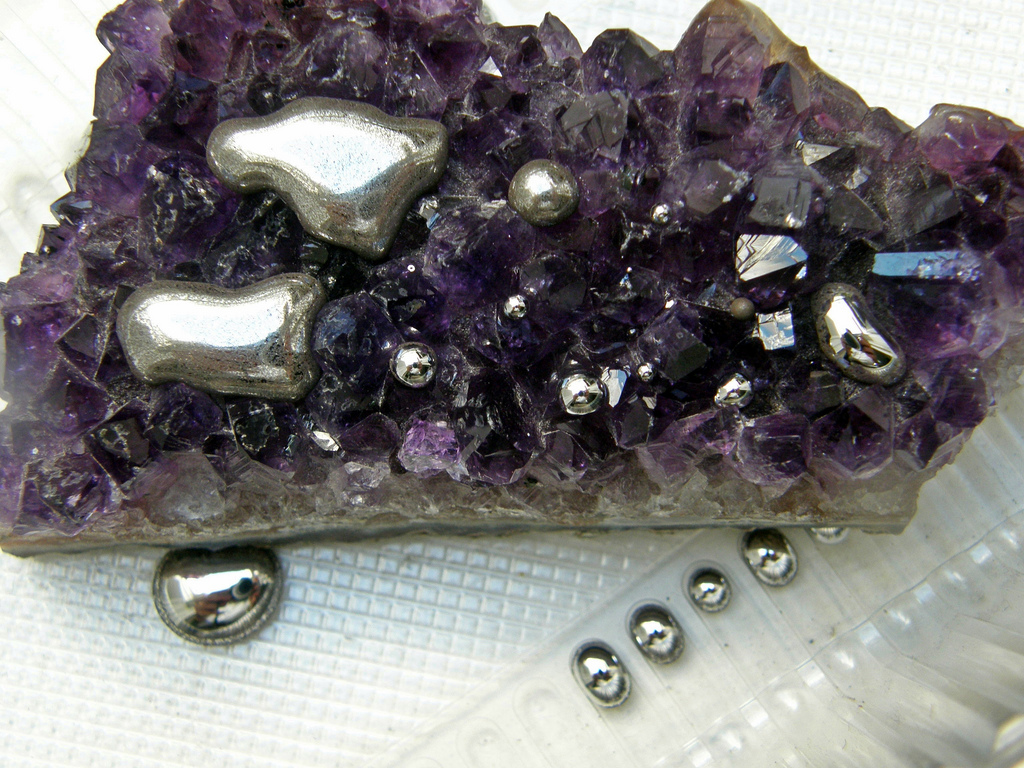Scientists in Brazil have expressed concern with the use of mercury in gold mining
3 August, 2012
Use of mercury in gold mining stirs controversy in Brazil. By Catarina Chagas. scidev.net. August 01, 2012. Scientists in Brazil have expressed concern that new regulations in the country’s Amazonas state continue to permit the use of mercury in gold mining, and have put forward what they say are more environmentally-friendly alternatives. Mercury is used mainly in small-scale ‘artisanal’ mining, using amalgamation processes that extract gold from other minerals by binding it to the mercury, and then burning off the mercury.
This activity is increasing in developing countries across Latin America and Africa due to the steady increase in gold prices in recent years.
However mercury has a highly toxic, irreversible effect on humans. Symptoms include psychomotor problems, memory loss, gingivitis, kidney problems, muscular tremors, and even death.
The Amazonas government, which first allowed the use of mercury in mining in 2005, argues that mercury is currently the only affordable option for artisanal miners.
But Daniel Nava, Amazonas’s secretary of state for mining, geodiversity and water resources, has said that new regulations released in mid-June by the Environmental Council of Amazonas are intended to tighten up its use.
"It should not be seen as freedom to use mercury, but as a regulation of mining activity," he said.
According to Nava, the new regulations include steps to mitigate the impact of mercury use. For example, simple equipment, such as crucibles or retorts, must be used to reduce the amount of mercury released into the atmosphere. The regulations also require all miners to take a course on good environmental practices.
But Brazilian scientists say that allowing mercury to be continue to be used in mining and released into the environment is a "huge step backwards", according to Olaf Malm, who is researching mercury pollution at the Federal University of Rio de Janeiro.
Malm toldSciDev.Net that it goes against the prevalent world view on proper mercury disposal, namely, to avoid any release into the environment.
Many scientists favour alternatives such as the use of cyanide, which they say is less harmful.
"Like any industrial process, cyanidation [a metallurgical technique for extracting gold from low-grade ore] has operational risks, being highly toxic to humans and to the environment. But responsible users should manage and take steps to mitigate such risks," said Giorgio de Tomi, a researcher in mining technologies at the University of São Paulo.
In particular, he added, "the process of neutralising cyanide after industrial use is simple, well known, widely used, and eliminates operational risks.”
De Tomi toldSciDev.Net that all larger companies working in the Amazon region use this process, and that public agencies, nongovernmental organisations, universities and other bodies should support miners in changing to mercury-free methods.
"In my opinion, this is not the result of miners’ careless attitudes. The mercury process is the only one they know that works. It’s up to us to support them in moving to mercury-free technology," de Tomi said.
However mercury has a highly toxic, irreversible effect on humans. Symptoms include psychomotor problems, memory loss, gingivitis, kidney problems, muscular tremors, and even death.
The Amazonas government, which first allowed the use of mercury in mining in 2005, argues that mercury is currently the only affordable option for artisanal miners.
But Daniel Nava, Amazonas’s secretary of state for mining, geodiversity and water resources, has said that new regulations released in mid-June by the Environmental Council of Amazonas are intended to tighten up its use.
"It should not be seen as freedom to use mercury, but as a regulation of mining activity," he said.
According to Nava, the new regulations include steps to mitigate the impact of mercury use. For example, simple equipment, such as crucibles or retorts, must be used to reduce the amount of mercury released into the atmosphere. The regulations also require all miners to take a course on good environmental practices.
But Brazilian scientists say that allowing mercury to be continue to be used in mining and released into the environment is a "huge step backwards", according to Olaf Malm, who is researching mercury pollution at the Federal University of Rio de Janeiro.
Malm toldSciDev.Net that it goes against the prevalent world view on proper mercury disposal, namely, to avoid any release into the environment.
Many scientists favour alternatives such as the use of cyanide, which they say is less harmful.
"Like any industrial process, cyanidation [a metallurgical technique for extracting gold from low-grade ore] has operational risks, being highly toxic to humans and to the environment. But responsible users should manage and take steps to mitigate such risks," said Giorgio de Tomi, a researcher in mining technologies at the University of São Paulo.
In particular, he added, "the process of neutralising cyanide after industrial use is simple, well known, widely used, and eliminates operational risks.”
De Tomi toldSciDev.Net that all larger companies working in the Amazon region use this process, and that public agencies, nongovernmental organisations, universities and other bodies should support miners in changing to mercury-free methods.
"In my opinion, this is not the result of miners’ careless attitudes. The mercury process is the only one they know that works. It’s up to us to support them in moving to mercury-free technology," de Tomi said.

